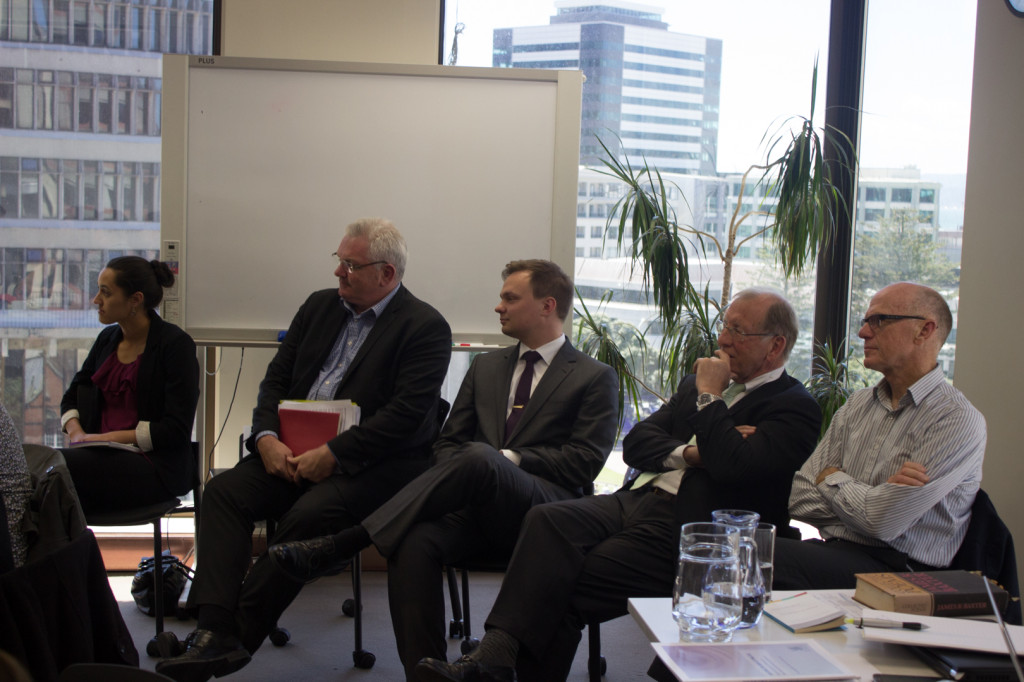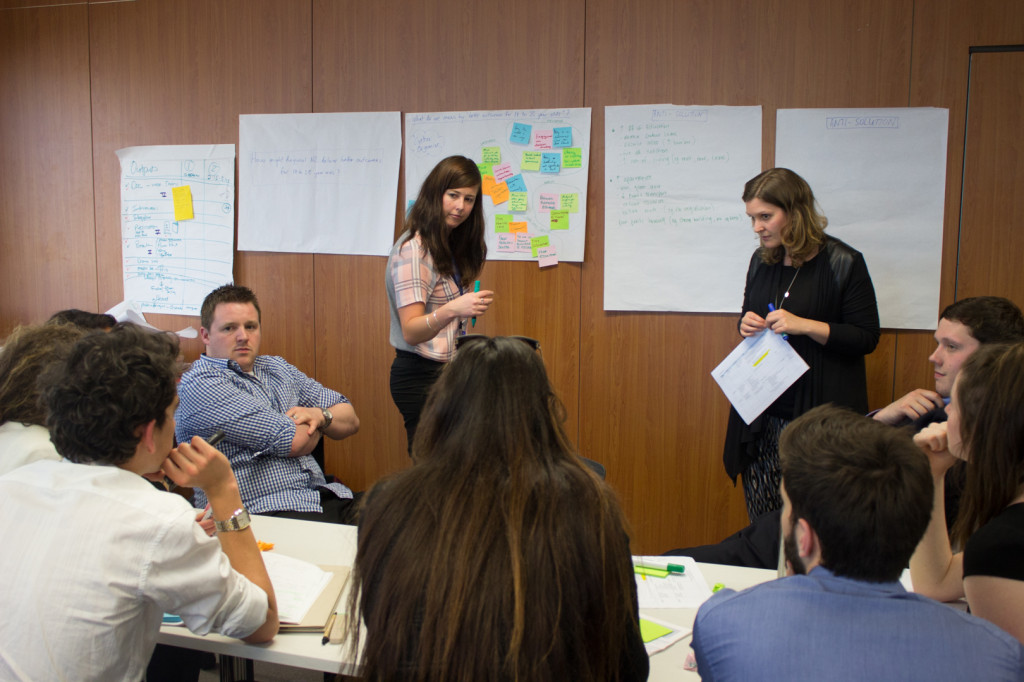Day three started at the Treasury. The ventures of the previous days were over, with participants staying put at
1 The Terrace for the majority of the day. The plan was to hear from a range of speakers, have group discussions and work alongside Treasury staff – with an expectation that this would be the most challenging day of the workshop. It did not disappoint.

Pictured left to right: Councillor Tania Tapsell, David Rutherford, Anton Samoilenko, Councillor Chris Laidlaw and Mike Reid
The speakers continued to exceed expectations, both in the quality of their words and their dedication in staying to field questions and engage with the participants. It was clear that the speakers were not just ticking a box; they were there to share their knowledge and hear from their audience. For speaker biographies, see here. The morning session involved speeches from Bill Moran, Dr Girol Karacaoglu, Jonathan Streat, Professor Jacqueline Rowarth, Ben Parker, David Rutherford, Lyn Provost, Councillor Chris Laidlaw and Anton Samoilenko. After consecutive presentations, each speaker joined a table of participants, allowing for closer discussion. The group also had the pleasure of welcoming Tania Tapsell, one of the youngest councillors in New Zealand local government, having been elected onto the Rotorua District Council at age 21. Tapsell spent the entire day with the participants, and her experience and willingness to help made her a valuable resource.
For the next session, the group organised themselves into a circle, and the speakers were seated – creating a more informal, discussion-based format. Firstly, they heard from Deputy Mayor Justin Lester, who gave insight into the current plans for Wellington’s economic development. This included an airport upgrade to allow direct international flights and the construction of a Middle Earth museum to capitalise on the international success of the Lord of the Rings and Hobbit film franchises. Following Lester was Shamubeel Eaqub. Many present were familiar with Eaqub’s book Growing Apart: Regional Prosperity in New Zealand and his theory of provincial ‘zombie towns’, giving rise to extensive discussion regarding the future of small town economies and communities. The group’s recent journey was particularly relevant, as Wanganui is one town that has been singled out as being in decline.
Treasury staff, led by Clodagh Jolly and Toby Cooper, then joined the group to lead a ‘creative thinking tools session’. Participants learned different styles of brainstorming and tackling issues – taking assumptions and turning them on their head. The group was challenged to create new ways of producing ideas – a tiring yet valuable experience. This session stressed the importance of teamwork and how to efficiently maximise the potential of individuals while still maintaining a group approach.
The participants migrated to the McGuinness Institute for dinner and the evening session. A discussion of outputs with the LocalNZ designers ensued, followed by a particularly interactive talk from information designer Mark Baxter, who regaled the group with stories of growing up in rural New Zealand and how one can incorporate these experiences into the creative process. The presentation was, as you may imagine, very visual.
The next few hours saw a lock in of sorts, as the participants barricaded themselves in the boardroom and fleshed out the content for the finale at Parliament. This exercise tested group dynamics as well as the ability to produce bold ideas, putting into practice the lessons taken from Treasury. With exhaustion creeping in, the group had to work hard to reach consensus and thus a unified front for the following day.

